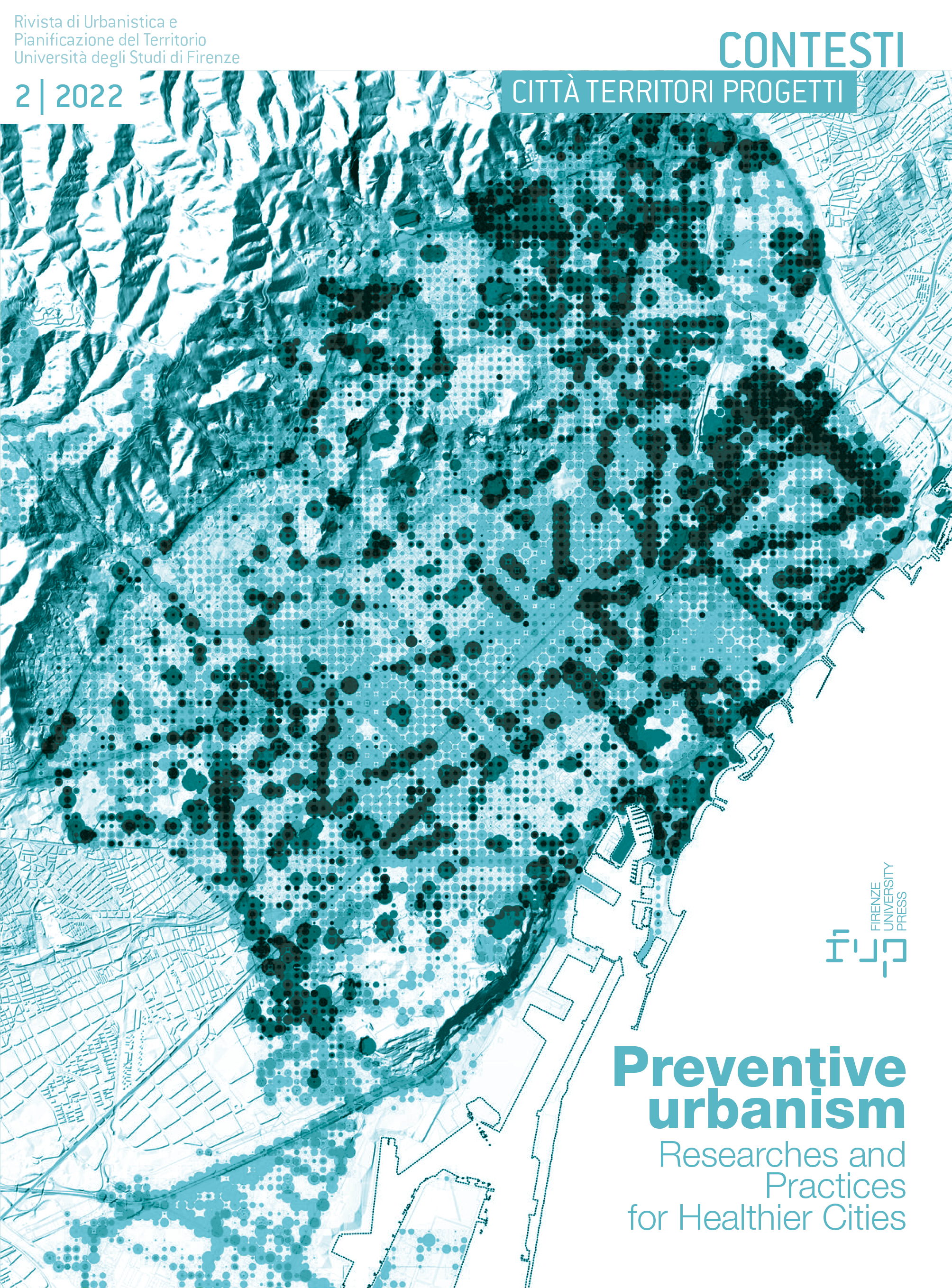Territorial Resilience towards Healthy and Safety Workplaces An Analysis of the Enterprises’ Exposure to Earthquake and Landslides in Fragile Central Italy
Published 2022-12-31
Keywords
- natural hazards,
- preventive planning,
- business continuity,
- sustainability,
- urban regeneration
How to Cite
Abstract
A healthy working environment is not enough if it is unsafe against natural hazards. The paper is an exposition of the research Re-scale (2020-21), and it focuses on earthquakes and landslides to assess the enterprises’ exposure in Central Italy through a spatial analysis of companies’ locations and multi-hazard conditions. The goal is twofold: i) to increase risk awareness by disseminating information about hazardous situations in which enterprises operate; ii) to arrange a working method to develop preventive planning that reduces disaster risk and increases the resilience of fragile territories. The study is relevant for recognizing which economic sectors are most exposed to earthquakes and landslides. For each economic sector (e.g., agriculture, manufacturing, commerce, real estate), the analysis highlights the exposure of working capital, human capital, and fixed capital (goods, buildings, and equipment). The analysis method and results can help support decisions in risk management, towards preventive planning: a way of planning that prioritises action to increase the resilience and security of the territory in peacetime, limiting the interruption of economic activities. The latter represents a high stress factor for workers’ health.


